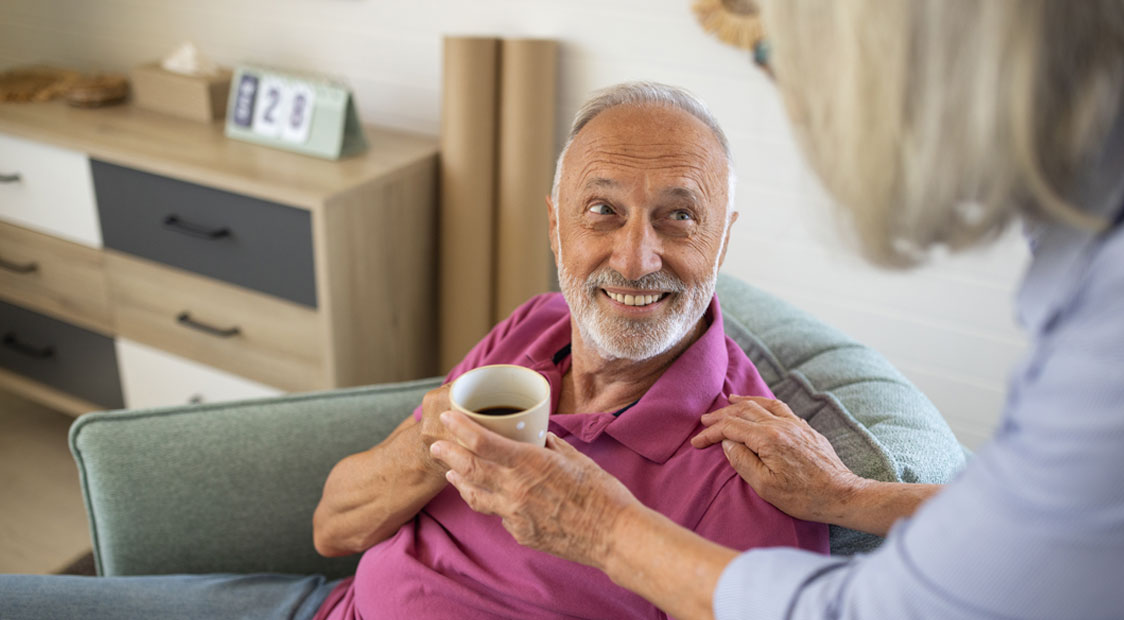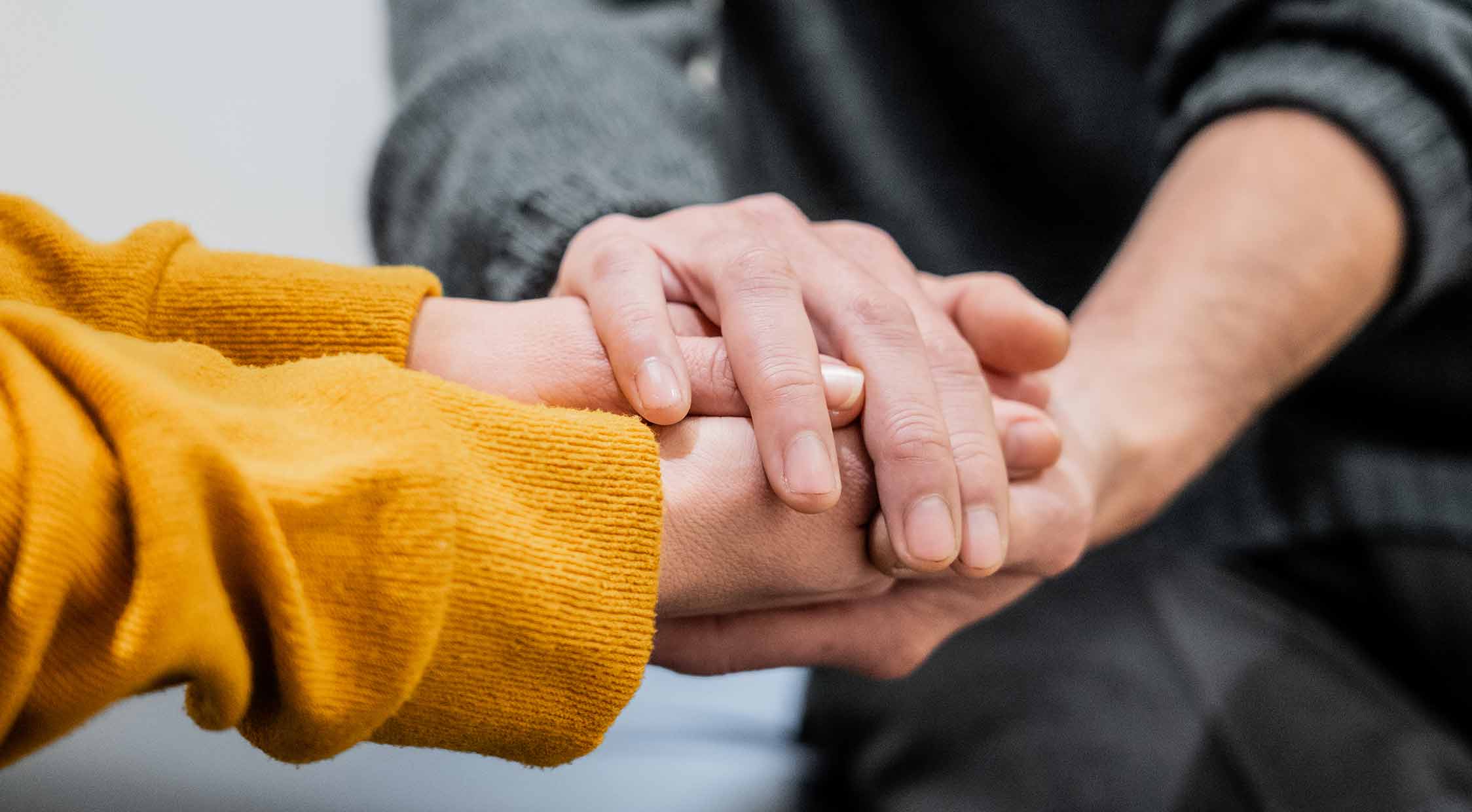Cancer caregivers and coping with your loved one’s cancer diagnosis and treatment
By Tamara Sorrye
Share:

Compassion Fatigue vs. Caregiver Burnout
People often overlook the selflessness of family and friends who care for someone with cancer. They support their loved ones through the diagnosis, treatment and all the challenges that come with it.
Cancer caregivers are important in supporting the patient physically and emotionally. Caregivers can be a spouse, a parent, a child, an aunt, an uncle, a friend or a neighbor. Some caregivers are there 24/7 and others jump in when they can. Often, when caregivers focus on their loved one with cancer, they forget to take care of themselves.
This raises the questions: What about the caregiver? What do they need? How are they feeling?
As a caregiver, remember to take time for yourself. It is important to care for yourself and the person with cancer. As the flight attendants always say, “Put on your mask before helping others!” There are simple ways you can do this.
Schedule time to make sure that you have some time to yourself, without having to care for someone else. Make sure that you eat all your meals on time so that you have the energy you need to support another person.
Drink water. Get enough sleep. Those are all the basic reminders many of us need each day to care for ourselves.
But when do we have to do more? Here are some things to look out for.
Compassion Fatigue
Compassion fatigue happens when a cancer caregiver finds it hard to show care for the person they help. It is the time when it is hard to show up for the patient. When you don’t want to do it anymore, but you still do it.
Caregivers experience compassion fatigue when they lack patience during schedule changes or when their loved ones need extra help. Caregiving can cause fatigue. This may show up as trouble concentrating, frequent complaints and looking stressed to others.
Caregiver Burnout
Caregiver burnout is when you, as a caregiver, are physically drained and are no longer able to care for your loved one. It is when your health has become an issue to the point that you can’t be here for your loved one anymore. The desire and compassion are still present; however, the physical implications of doing so have negatively impacted your health.
Caregiver burnout can show up as physical tiredness. It can also cause stress symptoms like headaches, stomach issues, forgetfulness and trouble sleeping.
How to Address Both:
Start with Self-Awareness
Here are some questions to ask yourself about aspects of your life to assess how you are doing:
- Start by taking a moment to assess your emotions. What are you thinking, feeling or saying? Is what you are feeling normal for you?
- Be aware of how many hours of sleep you are getting. Have you gotten adequate rest?
- Be aware of what other family members are saying.
- How has your daily routine changed?
- What are you not able to do anymore?
- What are you neglecting in your self-care routine?
What do you do when you reach the point of compassion fatigue or caregiver burnout?
- Hydrate.
- Eat nourishing food.
- Re-engage in one activity that you enjoy. Just 30 minutes can make a difference.
- Seek support from someone you trust.
- Rest. A 15-to-30-minute nap during the day can help you to feel rested and re-energized.
Remember, you can’t pour from an empty cup!
Find a Cancer Support Community
If you feel alone as a caregiver, remember that many resources are available to help you. The American Cancer Society offers a comprehensive Caregiver Resource Guide. This guide has videos to help you learn about caring for a loved one with cancer. It also offers tips for taking care of yourself while you care for someone with cancer and more.
Many cancer treatment centers offer caregiver support groups. Being around others who share similar experiences can be comforting. It also gives you a chance to learn from each other.
At the UF Health Proton Therapy Institute, we include caregivers in monthly outings for patients, as well as offer a support group specifically for caregivers. Many patients have found these resources to be an important part of their cancer treatment.
The American Cancer Society shares that the caregiving role can open doors to new friends and relationships, too. By joining a support group, you can meet individuals who have encountered similar challenges. This article about an adolescent patient’s cancer treatment for a brain tumor and his family finding support in others is a moving reminder for caregivers to find a community of support.
The American Cancer Society says that caregiving can bring families together. It helps create a sense of closeness with the person who needs help. Larry and Brenda Smith speak highly about how Larry's cancer diagnosis brought him closer to his wife and daughter who encouraged him to seek proton radiation therapy for prostate cancer.
Remember to seek help if you’re a caregiver facing burnout or fatigue. There is emotional support for families of cancer patients in addition to those seeking cancer treatment.
Options are available to support you and your loved one in your time of need. The support staff at the UF Health Proton Therapy Institute is here to answer your questions. They can also help guide you. You can find some of these resources here.



